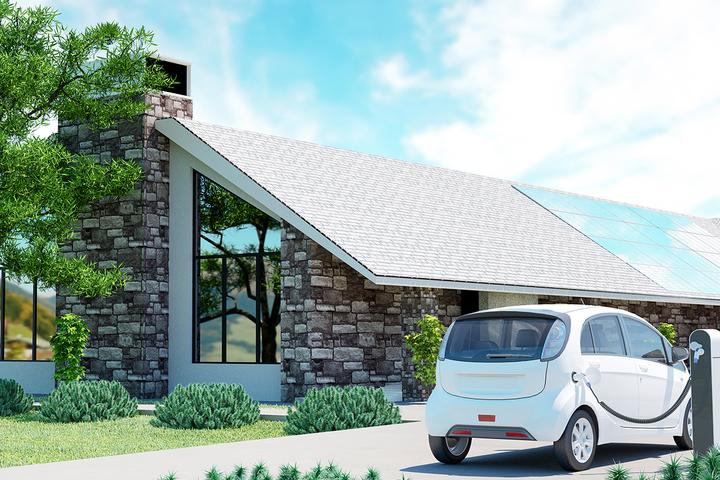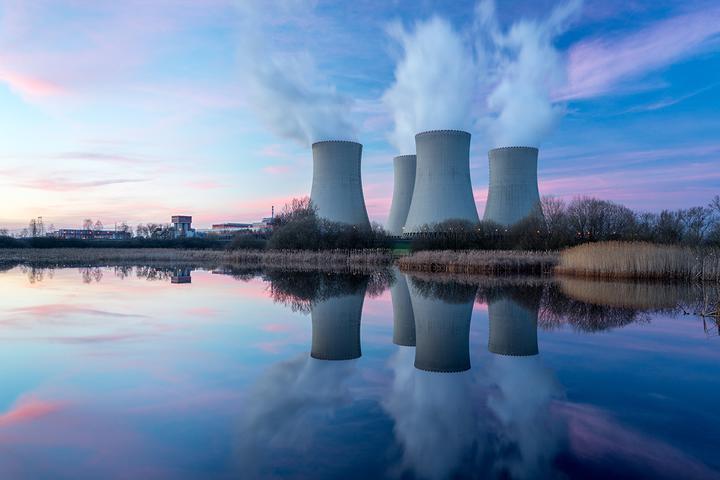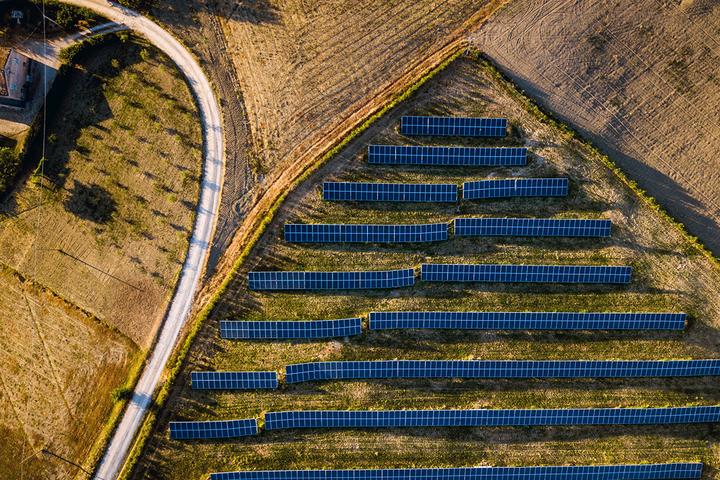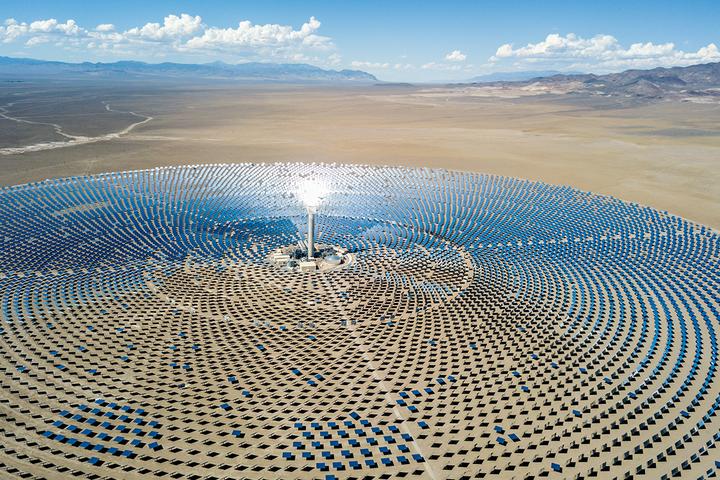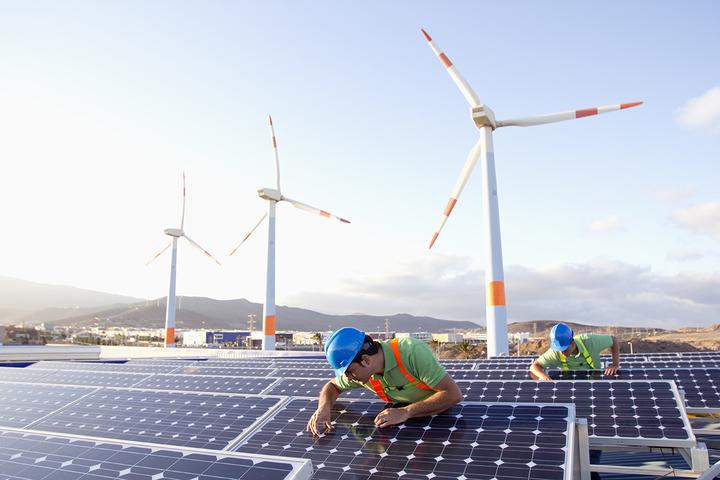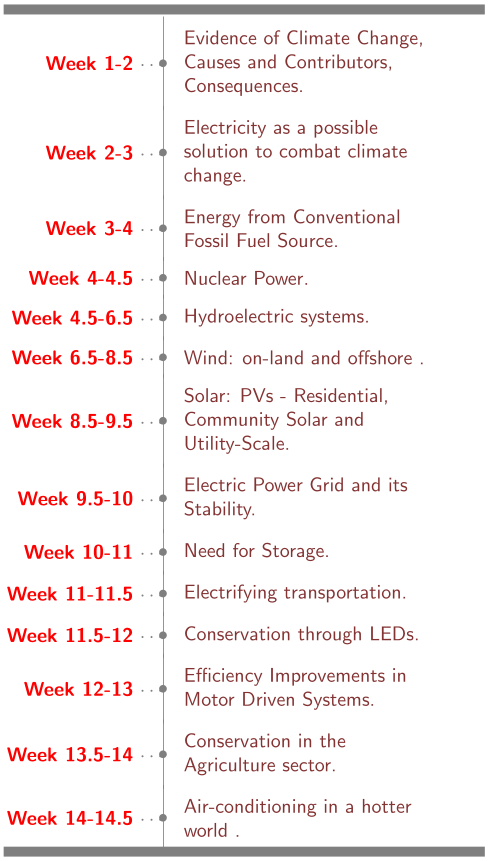Catalog Description
Energy from renewables such as solar and wind to combat potentially catastrophic climate change resulting from our use of fossil fuels; electrifying our transportation; ways to increase energy efficiency and energy conservation; need for energy storage to increase the penetration of renewables; role of technology, societal benefits and the ethics.
Course Summary
According to NASA, just a few more years of carbon dioxide emissions at current levels due to our use of fossil fuels will cause a runaway climate change and the results will be catastrophic, as are already being seen by island nations that risk being inundated by rising seas.
Against this dire backdrop, given its urgency and our moral responsibility (the poorest of the poor are at the frontline), this call-to-action course discusses the resources available and the technologies at hand to reduce carbon emission. It discusses how we can use most of our energy in the form of electricity and then generate it using non-carbon renewable resources such as solar and wind. This course is holistic where we discuss energy conservation using LEDs, agricultural that emits more greenhouse gases than all modes of transportation combined, and the link between our diet and the environment.
The goal of this course is to enable students to evaluate and compare various choices, develop a sustainability mindset, become an ambassador for the environment, discover their own passion for further studies and take their enthusiasm into their future careers as entrepreneurs, technical and policy experts, educators and community activists.
Course Format
This is a “living” course where the objectives and the topics covered remain the same but the topical content may change from one year to the next, based on the technological progress and scientific understandings.
Student Learning Outcomes
After completing this course, students can:
- Identify the causes of climate change and its impact.
- Understand the available renewable energy resources, the basis of harnessing energy from them, importance of conservation and monitor continuing developments and future breakthroughs.
- Compare and evaluate various solutions to producing energy from non-carbon sources.
- With the technological underpinning, communicate to policy makers in making the right decisions in energy-related policies.
- Understand that beyond technological innovation, the adaptation of any technology depends on creativity and consensus building across disciplines (economics, policy, etc.) to succeed.
- Become informed and engaged citizens with a passion for combating climate change in their own lives, by their own behavior and choices, and of those associated with them.
- Look for opportunities to accelerate the uptake of technology, design new institutions that promote and incentivize renewable energy use, align technology and policy, chart how incremental steps can lead to an economy-changing vision, understand the drivers of behavior and behavioral change, and privilege economic development and the attainment of a sustainable future for a wide range of people and places.
- Appreciate that the knowledge being imparted in this course is already being put into practice with a great deal of possibility of further innovations and breakthroughs.
- Find win-win policy solutions by fully examining the value created for customers, utilities, and the grid energy system from the widespread adoption of renewable energy sources.
- Look for entrepreneurial opportunities to employ technology for sustainability, for example employing smart sensors through the Internet of Things (IofT) for energy conservation.
- And, identify their own passions and pursue further studies and careers accordingly.
